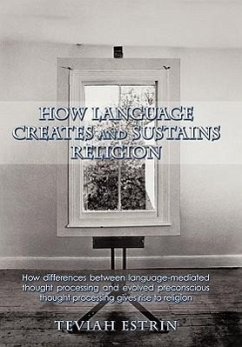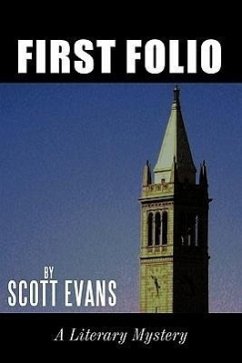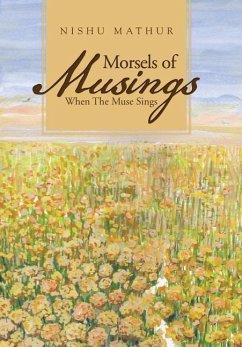
How Language Creates and Sustains Religion
How Differences Between Language-Mediated Thought Processing and Evolved Preconscious Thought Processing G
Versandkostenfrei!
Versandfertig in über 4 Wochen
21,99 €
inkl. MwSt.
Weitere Ausgaben:

PAYBACK Punkte
11 °P sammeln!
The nature of religion is a topic that has endlessly fascinated thoughtful humans from the times of the ancient Greeks to the present. There are many theories of and about religion. Many of them are functional theories based on the psychological, sociological, anthropological, or pragmatic uses and usefulness of religion for individuals and for groups. The weakness of such explanations is that they rely on the circular argument that the uses of religion are its source. How Language Creates and Sustains Religion explores a novel theory proposing that religion, in its twin aspects of spiritualit...
The nature of religion is a topic that has endlessly fascinated thoughtful humans from the times of the ancient Greeks to the present. There are many theories of and about religion. Many of them are functional theories based on the psychological, sociological, anthropological, or pragmatic uses and usefulness of religion for individuals and for groups. The weakness of such explanations is that they rely on the circular argument that the uses of religion are its source. How Language Creates and Sustains Religion explores a novel theory proposing that religion, in its twin aspects of spirituality and religiosity, originates and is sustained as a result of differences between human language or verbal thought processes and the innate neurological thought process that is a characteristic of all vertebrate animals. In a tour-de-force that combines some of the latest discoveries from neurology with knowledge from psychology, evolution and linguistics, the author explains the source and the nature of religion as it springs from the evolved brain of human beings.












